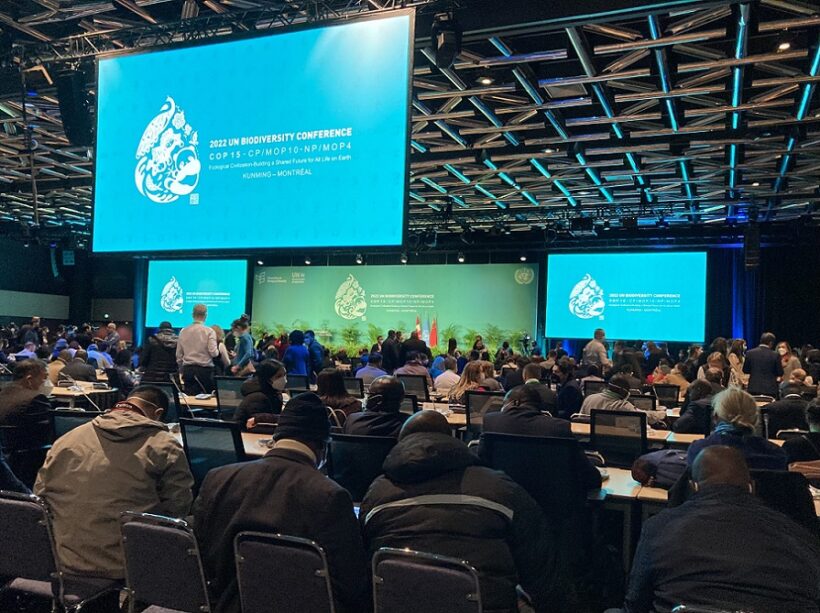After a week of mostly glacial deliberations, are COP15 negotiators any closer to reaching agreement on a global plan to reverse biodiversity loss? According to World Wide Fund (WWW) officials, what happened in week one is not ambitious enough to respond to the global existential threat of biodiversity and planet ecosystems.
At a press conference, Lucia Ruiz Bustos, WWF biodiversity and finance coordinator in Mexico pointed out that there were positive conversations around certain objectives, including the main proposal which aims to protect 30% of land and waters of the planet by 2030.
But she also said negotiations appear to be stalled over how the world will fund its goals and targets. Guido Broekhoven, head of research and development at WWF, said there is a lot of talk about how to find US$700 billion by 2030.
This is the amount that would be necessary, according to several countries, to finance the plan which will make it possible to reverse the decline of biodiversity, but governments alone will not be able to finance this effort.
“The actual amount that will be needed for the implementation of the global framework for the decade 2020-2030 will depend on the ambition” of the countries, underlined Guido Broekhoven.
“The higher the ambition, the more resources will be needed,” he added.
The various delegations present in Montreal are counting on philanthropic contributions, but also on the support of the private sector in order to find the means to implement a plan that meets expectations.
Guido Broekhoven from WWF made a point of underlining the important number of private companies present at the conference of Montreal and the importance of their possible contribution:
“We have never seen so many companies participate in a convention on biological diversity” and several of them “want to understand how to contribute to solving the problems of biodiversity.”
Nature conversation at the tyranny of money
At the COP15, after a week of negociations we find nature conversation at the tyranny of money. Nothing is done without money, nothing is possible without money.
But the safeguarding of ecosystems and nature requires above all the recognition of indigenous peoples and local communities who have been protecting biodiversity for millennia. These communities and indigenous peoples must be at the heart of discussions and negotiations and be part of the decision-making process. The problem is not money. The main issue at stake at COP15 in Montreal is the recognition of indigenous peoples and communities and their rights to manage their territories.






